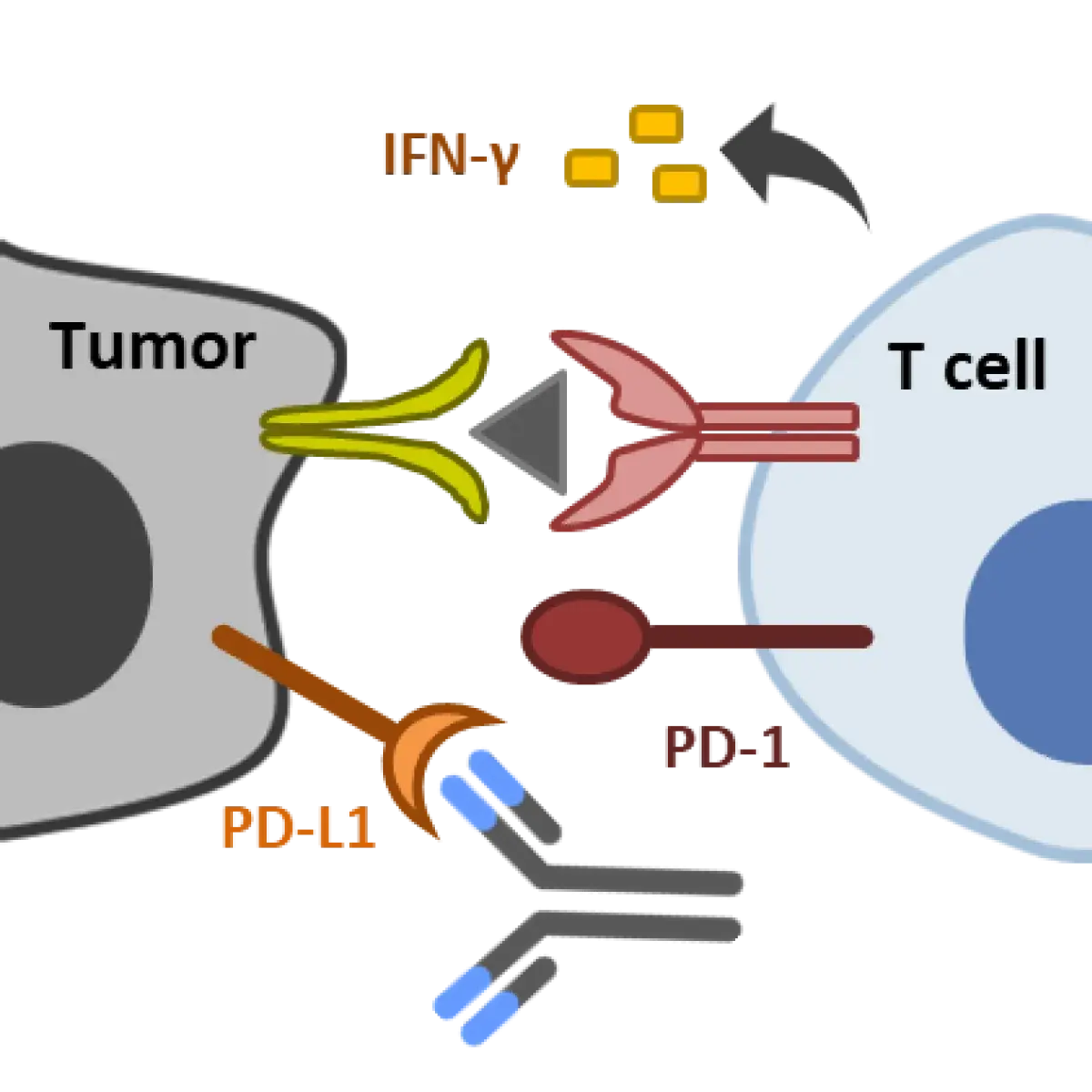我們開發抗體鎖技術平台,實現精準治療。
除了提供客製化的抗體鎖服務之外,Precisemab 也運用抗體鎖技術,在自體免疫疾病、腫瘤細胞表面抗原、免疫治療以及抗體藥物複合體等領域,開發具潛力的抗體鎖藥物。

應用類別

EGFR
PSM101
EGFR-directed tumor-activated monoclonal antibody
癌症:
癌細胞常過度表現特定蛋白質以延長生存與增殖,例如表皮生長因子受體 (EGFR),在頭頸癌、大腸癌等患者中普遍過度表現。然而,正常人體表皮細胞 也廣泛表現EGFR,因此傳統抗 EGFR 藥物容易對正常皮膚組織造成副作用。為了解決這一問題,Precisemab 開發了 PSM101,採用萬用抗體鎖技術,使抗體僅在腫瘤微環境中被活化,精準鎖定腫瘤細胞,有效降低對正常細胞的副作用。PSM101 已進入量產階段。
癌細胞常過度表現特定蛋白質以延長生存與增殖,例如表皮生長因子受體 (EGFR),在頭頸癌、大腸癌等患者中普遍過度表現。然而,正常人體表皮細胞 也廣泛表現EGFR,因此傳統抗 EGFR 藥物容易對正常皮膚組織造成副作用。為了解決這一問題,Precisemab 開發了 PSM101,採用萬用抗體鎖技術,使抗體僅在腫瘤微環境中被活化,精準鎖定腫瘤細胞,有效降低對正常細胞的副作用。PSM101 已進入量產階段。

TNF-α、IL-1β
PSM915
Tumor-selective immune modulating antibody
自體免疫疾病:
腫瘤壞死因子 TNF-α 可通過誘導細胞凋亡和系統性發炎反應來抵抗外來物質。然而,過量分泌則會引發嚴重發炎,甚至導致慢性發炎性疾病(如 類風溼性關節炎、發炎性腸道疾病)。市售抗體雖能結合並消除 TNF-α,達到緩解效果,但同時也抑制正常區域的免疫防禦,增加肺炎、敗血症、伺機性感染的風險。Precisemab 開發的抗體已證實治療效果更佳,且顯著降低副作用。
腫瘤壞死因子 TNF-α 可通過誘導細胞凋亡和系統性發炎反應來抵抗外來物質。然而,過量分泌則會引發嚴重發炎,甚至導致慢性發炎性疾病(如 類風溼性關節炎、發炎性腸道疾病)。市售抗體雖能結合並消除 TNF-α,達到緩解效果,但同時也抑制正常區域的免疫防禦,增加肺炎、敗血症、伺機性感染的風險。Precisemab 開發的抗體已證實治療效果更佳,且顯著降低副作用。

PD-1、CTLA-4
4-1BB、CD28、CD47
Lock BsAb
Tumor-activated bispecific antibody platform
免疫療法:
免疫抑制劑通常通過結合免疫細胞,促使免疫細胞活化或避免受到抑制,以達到毒殺腫瘤的效果。然而,抗體藥物在人體內可能活化非靶向部位的免疫細胞,從而引發免疫風暴或組織器官發炎,造成患者不適或嚴重副作用。碩準生技已將萬能抗體鎖技術成功應用於多項免疫抑制劑,並透過體內與體外試驗驗證其在腫瘤治療中的效果,同時降低副作用。
免疫抑制劑通常通過結合免疫細胞,促使免疫細胞活化或避免受到抑制,以達到毒殺腫瘤的效果。然而,抗體藥物在人體內可能活化非靶向部位的免疫細胞,從而引發免疫風暴或組織器官發炎,造成患者不適或嚴重副作用。碩準生技已將萬能抗體鎖技術成功應用於多項免疫抑制劑,並透過體內與體外試驗驗證其在腫瘤治療中的效果,同時降低副作用。

TBD
(To be determined)
Lock ADC
Tumor-selective antibody-drug conjugate
抗體藥物複合體(ADC):
抗體藥物複合體 (ADC) 是目前熱門的藥物開發方向,其利用抗體將藥物精準運送至腫瘤區域,並藉由抗體與藥物的加成效果,達到抑制腫瘤生長的目的。然而,ADC 藥物的設計也帶來 潛在風險,若藥物在非腫瘤部位提前釋放或非靶向組織被誤傷,將增加副作用風險,對患者造成不良影響。
抗體藥物複合體 (ADC) 是目前熱門的藥物開發方向,其利用抗體將藥物精準運送至腫瘤區域,並藉由抗體與藥物的加成效果,達到抑制腫瘤生長的目的。然而,ADC 藥物的設計也帶來 潛在風險,若藥物在非腫瘤部位提前釋放或非靶向組織被誤傷,將增加副作用風險,對患者造成不良影響。